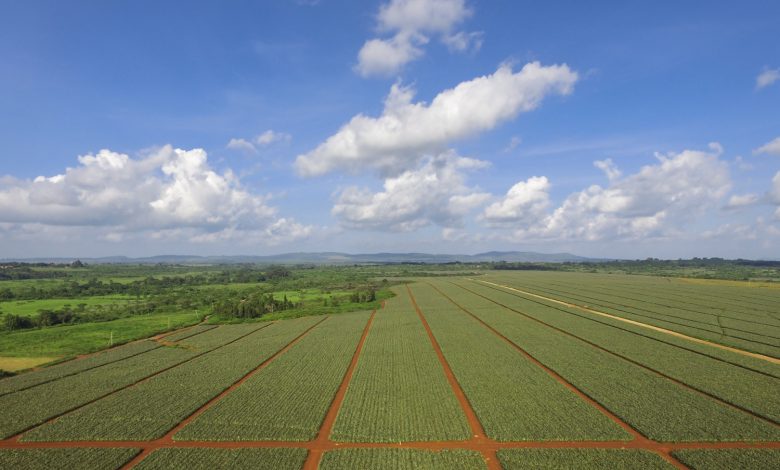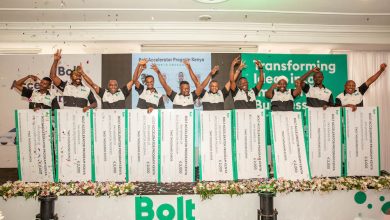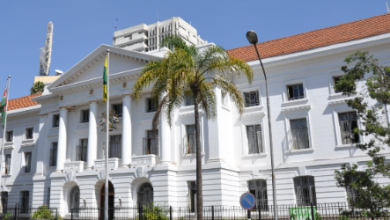Fruit-processor Del Monte Kenya Rallies Resources for Socio-economic Development

In a country where agriculture accounts for 20% of the GDP, the role of processing industries in socio-economic development remains invaluable. Not only do such industries drive macroeconomic figures up, they also impact individual livelihoods and the local communities that surround them.
Fruit-processor, Del Monte Kenya, has been a major player in the Kenyan economy since 1965. Well-known for its pineapple farms in Thika, the firm has recognized opportunities for improving the lives of its workers and the local communities by actively engaging in the provision of amenities.
By empowering communities around them, Del Monte Kenya has solidified its position as a top exporter of pineapple products to the global market. In 2023, the company exported 75,000 metric tonnes of its products abroad through the port of Mombasa. In achieving this, the company enabled Kenya to multiply its FOREX (foreign exchange) reserves.
“At Del Monte Kenya, we are deeply proud to be part of the sector’s remarkable growth and development. Agriculture is the backbone of Kenya’s economy, supporting countless livelihoods and nurturing our communities. Our commitment goes beyond business; it is about sustaining families and fostering a brighter future for all,” said Del Monte Kenya’s Acting Deputy Managing Director, Wayne Cook.
In accordance with the Sustainable Development Goals set by the United Nations, Del Monte Kenya’s continued investment intends to alleviate poverty through shared prosperity and wider industry association. The company employs more than 6,000 locals and supports about 28,000 jobs through its associations with other businesses.
Delmonte BioFertilizer plantDel Monte’s supply chains also generate about KSh 8 billion every year, benefiting local suppliers who provide raw materials and equipment used in production processes.
The processor has also been a consistent taxpayer since establishment, guaranteeing the government a steady flow of revenue. Last year, Del Monte Kenya paid about KSh 1.3 billion in taxes ranging from employee PAYEs, VAT, corporate taxes, withholding tax, and excise duty. This has been a significant boost to the country’s declining revenue base.
Infrastructural development is crucial for industries operating within a community. By streamlining supply chains and ensuring easier movement of labour, good infrastructure guarantees industries of higher productivity rates and uninterrupted operations. Both raw materials and finished produce need to be transported between the processing plant and the markets. To ensure the transport of its products to its final destination, Del Monte Kenya invests KSh 100 million every year in the maintenance of public roads in and around its farms.
Investments in infrastructure have spillover advantages or external benefits that can be enjoyed by local communities. Individuals can easily move from one place to another, saving time and labour that could be accorded to other meaningful activities. These investments also allow people to connect and readily avail themselves to work thus improving the coordination of productive activities. To maximize the use of these resources, Del Monte Kenya has further invested in other sectors such as education in the area.
Kihunguro Junior Secondary School situated in Del Monte Plantation during a Nutrition and Agriculture classDel Monte Kenya’s support of education initiatives is not a new thing. In 1960, the company was one of the key stakeholders in the development of Kihunguro Primary School which has served about 3,000 students to date. The company’s weight has also been felt in three other primary schools and eight Early Childhood Development schools around the region. Additionally,Del Monte Mixed Secondary school was established in 2010, providing affordable high school education for more than 12,000 students. Employees’ children as well as residents from Umoja, Gichagi, and Kilimambogo benefit from the educational opportunities that Del Monte Kenya has dedicated itself to improving.
“Due to the support from Del Monte, last year we produced one of the best KCSE students in the area, Bernard Okinyi, who scored a B+. The school is the best in the zone in terms of university placement where we have five students,” said the Principal of Del Monte Secondary school, Maina Gitu.
Form 1 Class Del Monte Mixed Secondary School during a Kiswahili LessonThe company invests in education to prepare local individuals for roles at the processer, like mechanical engineering, agronomists, and farm management.
“The land for Ndula Secondary School was donated by Del Monte Kenya. The company also provides sanitary pads for female students which ensures that they not only stay in school but are able to learn with dignity,” said the Principal of Ndula Secondary School, Beatrice Wanjau.
The company provides clean water, firewood for cooking, and staff furniture in the school, thus saving operational costs. These social investments have seen Del Monte Kenya pump KSh 3.2 million, appreciating the company’s value in the region.
ALSO READ; How Financial Institutions Can Help Mitigate Climate Risks



